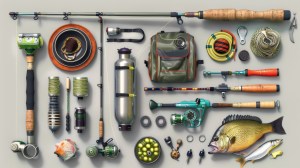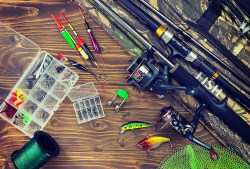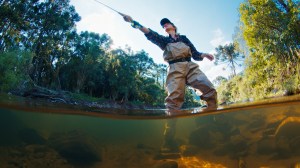How Weather Patterns Affect the Best Times for Freshwater Fishing
Fishing enthusiasts understand that timing is crucial when it comes to catching freshwater fish. One of the most significant factors influencing these optimal times is weather patterns. In this article, we will explore how different weather conditions affect fish behavior and, consequently, the best times to cast your line.
Understanding Fish Behavior
Fish are cold-blooded creatures, meaning their body temperature is directly influenced by their environment. This means that they are more active during certain times of the day, particularly when conditions are favorable. Factors such as light levels, water temperature, and food availability all play a vital role in determining when fish will be most likely to bite.

Impact of Temperature on Fishing
Water temperature significantly influences fish activity levels. During warmer months, fish tend to be more active in the early morning and late afternoon as temperatures rise but remain manageable. As temperatures soar at midday, many species seek deeper waters where it’s cooler and oxygen levels may be higher.
The Role of Cloud Cover
Cloud cover can provide an excellent opportunity for anglers looking to catch freshwater fish. On overcast days, fish feel less threatened and venture out from their hiding spots to feed more actively throughout the day. This can lead to productive fishing during hours that might otherwise be slower on sunny days.
Effects of Wind on Fishing Times
Wind also plays a crucial role in determining fishing success. A light wind can create ripples on the water surface which helps mask an angler’s movement and makes fish less wary. Windy conditions can stir up food sources along shorelines and attract fish closer to areas where anglers can cast their lines effectively.
Rainfall: A Double-Edged Sword
While rain may seem inconvenient for outdoor activities, it can dramatically impact fishing conditions positively or negatively depending on its intensity and duration. Light rain often creates ideal fishing conditions as it cools down surface temperatures and stimulates feeding activity due to increased oxygenation in water bodies. However, heavy rainfall may muddy waters or cause dangerous currents that could deter both anglers and fishes alike.
Ultimately, understanding how weather patterns influence freshwater fishing allows anglers not only to choose better times for casting their lines but also helps them maximize their chances of landing that prized catch. So next time you plan a fishing trip, pay attention to the weather forecast—it might just make all the difference.
This text was generated using a large language model, and select text has been reviewed and moderated for purposes such as readability.











